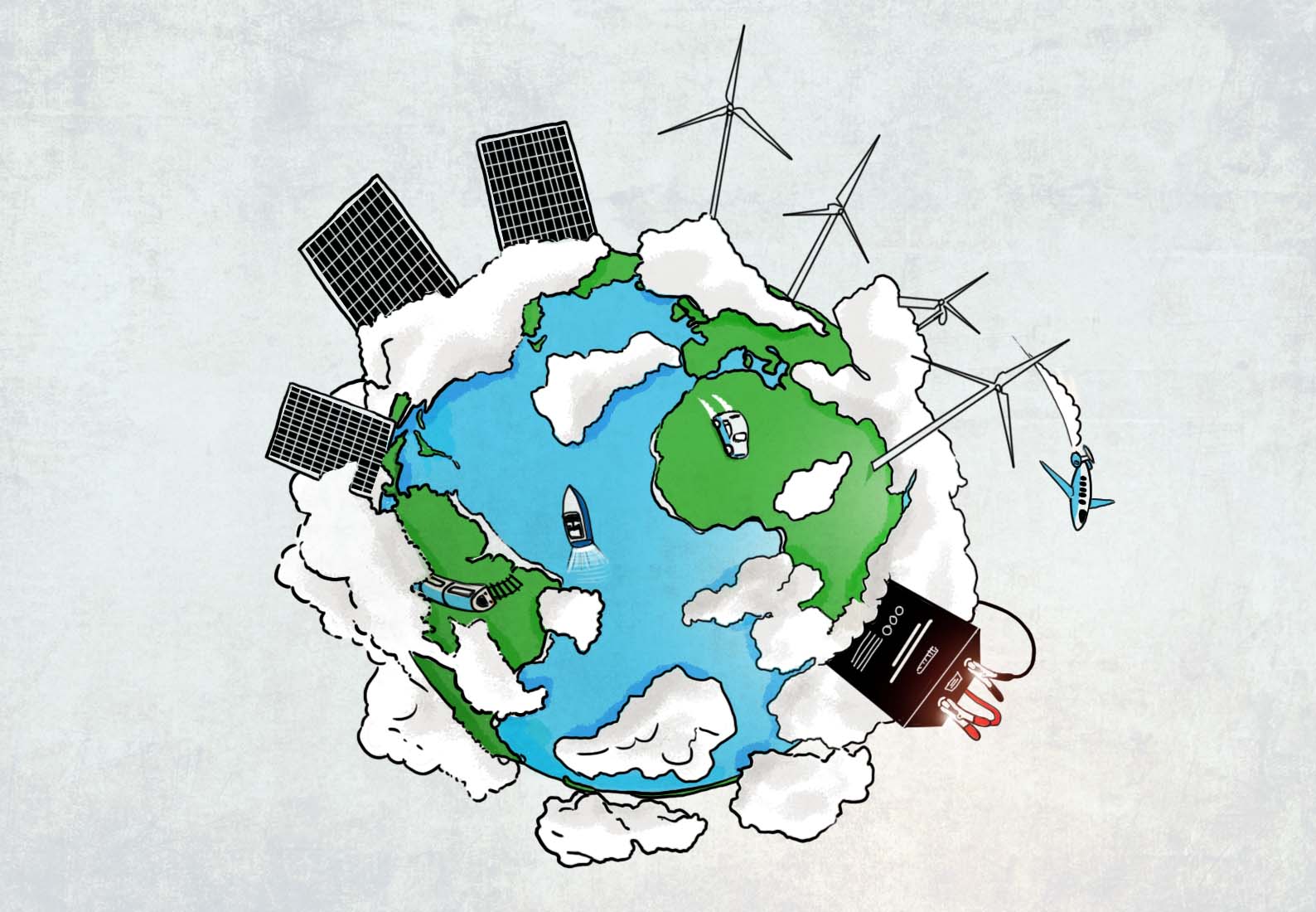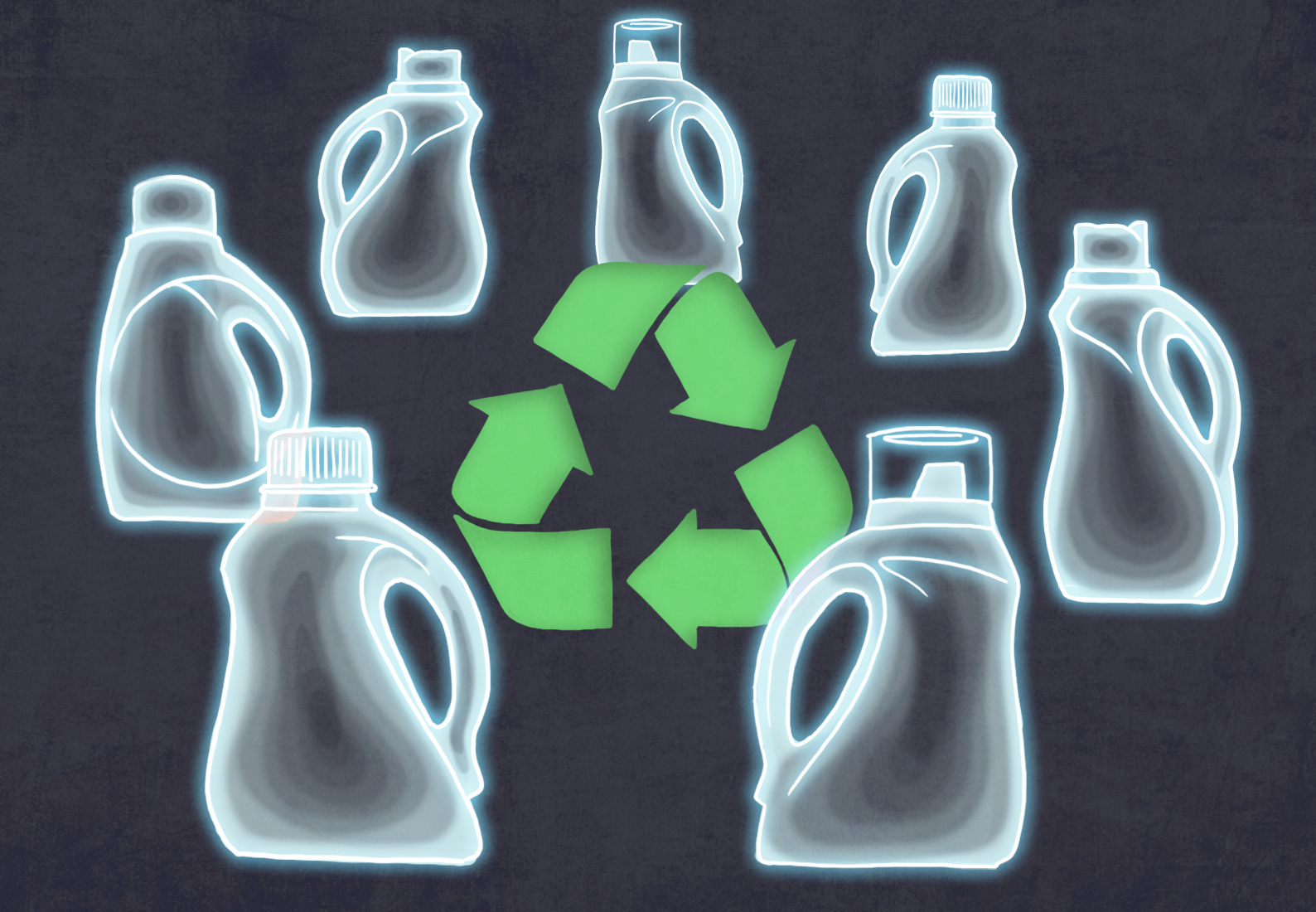Lithium-ion batteries impact every facet of our daily lives. They influence the weight, size and functionality of all consumer electronic devices. As more electric vehicles hit the road, battery charging capabilities will dictate road trip routes and daily commutes. Even society’s ability to adopt renewable energy like solar and wind hinges on the storage capacity and cost of batteries within the power grid managing intermittent generation.
To meet the ambitious technology and sustainability demands of the future, we need lithium-ion batteries that are less expensive, smaller, and safer. To build better batteries, we must discover better materials. The challenge is that traditional materials research is labor intensive, requires millions in funding, and takes years of effort only to result in the discovery of compounds that are unscalable. Under these constraints, scientists have only been able to explore a tiny fraction of molecular possibilities, which have led to incremental advances. The development of an economically viable, next generation battery capable of catalyzing the near-term adoption of clean technologies is only possible with a reinvention of this glacial materials discovery approach.
In the short term, we hope to build a safer battery that is more energy dense and has a lower price point, reducing the overall cost of electric vehicles and grid storage.
At Eonix, we believe the next evolution in materials discovery is pairing our accelerated materials screening ATLAS platform with computational resources, and our partnership with Schrödinger allows us to do just that. We initially set out to reduce the time and cost required to evaluate new materials and discover high-performing, commercially viable molecules for next generation energy storage. To achieve this feat, we developed a high-throughput materials screening platform that enables the properties of new materials in a lithium-ion battery to be explicitly measured in real time. The ATLAS screening platform shrinks the months of laborious research to understand a novel compound down to days, significantly accelerating the rate of materials discovery and generating an unprecedented volume of chemically diverse battery data.
Leveraging the ATLAS system and an unrivaled electrochemical database, we’re now developing new workflows that incorporate Schrödinger’s physics-based technology and machine learning expertise to identify new structure-activity relationships and enable intelligent, automatic compound selection. Instead of relying on a research team to manually review the rapidly expanding database generated by our ATLAS system and attempt to select the next ideal chemical candidate for evaluation, we can now computationally analyze this growing database and automatically select the next best candidate from a catalog containing hundreds of thousands of existing chemicals to improve a desired battery property. As the ATLAS platform rapidly evaluates these automatically selected candidates, the Schrödinger models will be iteratively retrained eventually resulting in the most advanced predictive platform for energy storage materials in the world.
The long-term implications of this collaboration have the potential for a profound impact on the energy storage industry.
Supercharging this process is Schrödinger’s advanced physics-based modeling, which enables unparalleled featurization of Eonix’s database generated by ATLAS for training machine learning models and screens chemical candidates in complex systems by solution property. In contrast to current computational methods that rely on rudimentary open source molecular descriptors and highly variable, limited public databases, this novel approach utilizes Schrödinger’s physics-based modeling to calculate more comprehensive descriptors and harnesses Eonix’s chemically diverse database for robust machine learning model training. Beyond machine learning, Schrödinger’s platform enables prospective chemical candidates to be pre-screened further by modeling solution properties in complex systems ensuring that the selected candidates meet the targeted miscibility, conductivity, or other physio-chemical requirements.
Leveraging physics-based modeling and machine learning technologies will help us identify better chemical candidates faster than ever before. Coupling Eonix’s ATLAS screening platform with Schrödinger’s computational platform will drastically accelerate materials discovery, allowing us to generate new “plug-and-play compatible” candidates that fit into the existing manufacturing process. This is essential for keeping production costs down, which translates to lower prices for consumers. Minimizing costs will also make large-scale adoption of renewable energy easier and more affordable for companies and communities around the world.
In the short term, we hope to build a safer battery that is more energy dense and has a lower price point, reducing the overall cost of electric vehicles and grid storage. Currently available lithium-ion batteries are flammable, requiring the addition of exhaustive battery management systems that add weight and bulkiness to the battery and overall product. Discovering materials that are inherently nonflammable would solve this major safety challenge, opening new possibilities for low cost electric vehicles, safe grid energy storage and other applications.
The long-term implications of this collaboration have the potential for a profound impact on the energy storage industry. Schrödinger’s physics-based platform perfectly complements Eonix’s ATLAS screening system for energy storage materials discovery and this collaboration serves as a blueprint to innovate every material and property in a lithium-ion battery. We hope to build workflows that will accelerate materials discovery for specific features in the energy storage space, such as faster charging or the ability to withstand extreme temperatures.
For the first time, rapid experimental materials screening will be paired with rapid computational screening to assess hundreds of thousands of chemical candidates in an accelerated time frame. Designing the next generation of lithium-ion batteries has far-reaching implications, from the cell phone in your pocket to the energy grids across the country. In partnership with Schrödinger, we believe a green future powered by better batteries is within reach.









